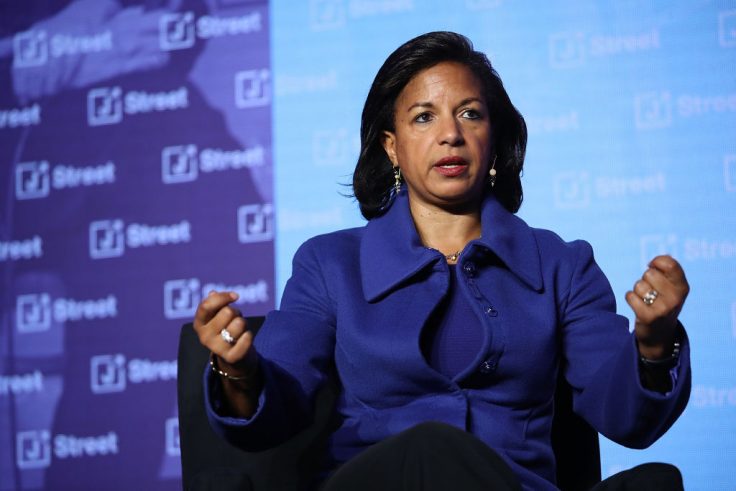President Joe Biden put controversial former national security adviser Susan Rice in charge of directing hundreds of federal agencies and departments to expand access to mail-in voting.
Biden signed an executive order in March that put Rice, now the assistant to the president for domestic policy, in charge of soliciting strategies from federal agencies to produce "relevant information" on expanded voting registration procedures. Federal agencies must submit to Rice "a strategic plan outlining the ways identified under this review that the agency can promote voter registration and voter participation" within 200 days under the terms of the order.
"Agencies shall consider ways to expand citizens' opportunities to register to vote and to obtain information about, and participate in, the electoral process," the order states. "The head of each agency shall evaluate ways in which the agency can, as appropriate and consistent with applicable law, promote voter registration and voter participation."
It requires agencies to distribute registration and vote-by-mail ballot application forms, as well as to assist any applicants in completing the forms. It also pushes agencies to allow "approved, nonpartisan third-party organizations and State officials to provide voter registration services on agency premises."
Biden arrived in the White House thanks in large part to the record number of mail-in ballots in the 2020 election. Former president Donald Trump led in many major swing states at the close of Election Day, only to see his lead evaporate as mail-in ballots were counted that heavily favored Biden.
Critics of Biden's order warned that it represents a massive federal government overreach into election policies put in place by state lawmakers. Chase Martin, legal affairs director for the Foundation for Government Accountability, said the order is "an overly broad federal mandate."
"The order is about inflicting the federal government's will on the states," Martin said. "There's a ton of room for this process to be abused."
The Biden administration did not respond to a request for comment on the order.
Rice has come under fire for her tenure as national security adviser under the Obama administration. Republicans have criticized her handling of the Benghazi crisis and the Bowe Bergdahl hostage exchange as well as her alleged attempts to reveal the identities of Trump campaign and administration officials. Rice denied that she leaked any names or identities and said she only obtained information to add context to intelligence reports she received.
The order comes in the midst of political fighting over the future of voting rights and election security. Biden criticized a new election law in Georgia, which created regulations on in-person and mail-in voting, as racist. He accused Georgia Republicans of re-creating "Jim Crow in the 21st century." A Washington Post fact check of Biden's criticisms found that Biden misrepresented the Georgia law's impacts on early voting. The Post awarded Biden four Pinocchios after voting experts said the final bill expanded opportunities for early voting. That has not stopped several groups from filing lawsuits against the Georgia law, alleging that Republican lawmakers put the law in place after Democrats won the state in the presidential election as well as two runoff elections in January.
The Brennan Center for Justice found that as of mid-February 2021, 43 states are considering bills that seek to limit mail-in voting or impose voter ID requirements on in-person voting. Republican lawmakers have defended these laws as protecting the integrity of the voting process while Democratic lawmakers argue that the laws are intended to suppress turnout, specifically in minority communities, by making voting more difficult.
Congressional Democrats are pushing a sweeping legislative effort that would drastically overhaul voter registration processes and place more authority in the hands of the federal government. The bill would also alter laws concerning political speech, which lawyers for the ACLU warned could have negative impacts on activist groups. Martin said the executive order represents a hedge from Biden in case the election reform bill does not get through the Senate.
"It's one of Biden's telegraphed moves to enforce a governance by decree," he said.
The Supreme Court has ruled that voting laws are best left to states, rather than the federal executive branch. Justices repeatedly rejected the Trump administration's challenges to state election rules in the run-up to the 2020 election. Martin said that the federal government's stepping in to influence state law could threaten the ability of states to adjust to changing circumstances.
"The Supreme Court has constantly punted to the states and allowed states to create their own election systems as long as they respect the Constitution. As long as there isn't a specific federal law on the issue, states are free to create their own processes, strengthen their own voter integrity systems, develop measures to get out the votes, the administration process," Martin said.
